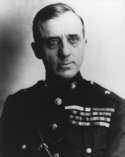A) The Roosevelt Corollary
1) Panama Canal – the construction of the Panama Canal was the result of another US imperialist foray into Latin America. Now president Theodore Roosevelt broke off negotiations with the Columbian government for right to the canal path when he thought they were asking too much money; instead, he negotiated with and convinced a small group of Columbian (despite what the textbook says, they were not “Panamanian;” that country is the invention of the United States) landowners in the area of the proposed canal that their land would greatly increase in value if the United States could build a canal there; these businessmen “rebelled” and US gunships prevented the Columbian navy from responding to this internal crisis, and then quickly recognized the resulting government. When the canal was completed in 1909, the US made Panama a protectorate, a status it maintained for thirty years
2) Roosevelt Corollary to the Monroe Doctrine – the Monroe Doctrine warned nations of Europe not to intervene in the affairs of the countries in the Western Hemisphere; Roosevelt extended this principle to justifying the intervention of the United States in the affairs of these countries in order to forestall any actions of “outsiders.” In practice, this led to armed intervention by the United States on a number of occasions.
(a) Cuba – protectorate from 1898-1934. In 1901, Secretary of State Elihu Root set about to make guidelines for future Cuban-US relations. The guidelines were introduced in the US Senate by Orville Platt, and thereafter known as the Platt Amendment.
The Platt Amendment stipulated the conditions for U.S. intervention in Cuban affairs and permitted the United States to lease or buy lands for the purpose of the establishing naval bases (the main one was Guantánamo Bay) and coaling stations in Cuba. It barred Cuba from making a treaty that gave another nation power over its affairs, going into debt, or stopping the United States from imposing a sanitation program on the island. Specifically, Article III required that the government of Cuba consent to the right of the United States to intervene in Cuban affairs for “the preservation of Cuban independence [emphisis mine], the maintenance of a government adequate for the protection of life, property, and individual liberty, and for discharging the obligations with respect to Cuba imposed by the Treaty of Paris on the United States, now to be assumed and undertaken by the Government of Cuba.”
This contrasts with the Teller Amendment, passed before the beginning of hostilities, which claimed that the United States government had no interest in holding any territory that it might gain in concession from Spain.
(b) Philippines--a colony of the United States from 1898 to 1946. Philippine resistance to this circumstance led to the the Philippine-US war, which lasted from 1899 to 1902. The Spanish resistance in the Philippines had been so feeble in large part due to the success of the Filipino insurgency, which by 1898 largely controlled the countryside. Nevertheless, when Spain and the United States sat down to discuss the future of the Philippines, the Filipinos had no representation at the bargaining table. The Filipino government refused to accept this outcome, which resulted in fighting breaking out between Filipino freedom fighters--or insurgents, as the US labeled them--and US troops. This quickly devolved into a guerrilla war, with the Filipino fighters inflicting casualties, and then melting into the jungle. This led the US to shift civilian populations into internment camps (where many died because of inadequate sanitary facilities), and to create "free-fire zones" (to use a term from another land war in Asia involving the United States). During the conflict, the United States lost 4,000 troops, while the number of Filipinos killed ranges from 20,000 troops and somewhere between 200,000 and 1,000,000 civilians
3) The Banana Wars--this new interventionist foreign policy led to numerous invasions of foreign countries in Central and South America, as well as several Caribbean islands, to "protect US interests"--business interests, that is
(a) Haiti – protectorate from 1915-1934
(b) Dominican Republic – protectorate 1905-1941; protectorates were nominally independent, although the United States reserved the right to intervene in internal affairs—and prevented protectorates from signing any treaties with third countries (that is, countries other than the United States.
(c) Honduras--the original Banana Republic, so named by US author O. Henry.
(d) Nicaragua--indigenous resistance was led be Augusto César Sandino until his capture murder by Anastasio Somoza Garcia, whose family ruled Nicaragua the next forty years.
(e) Maj. Gen. Smedley D. Butler--one of only 19 Americans to be awarded the Medal of Honor twice, Butler led Marines on a number of interventions--Haiti, Honduras, Mexico, Nicaragua, and the Boxer Rebellion in China. After he retired, he wrote a book called War is a Racket, where he claimed
4) Russo-Japanese War – Japanese pushed Russian military around in Asia, eventually occupying Korea.
a) Japan – Japanese desires to become dominant force in Asia collided with US desires for the same; racial animosity also fueled this rivalry







No comments:
Post a Comment